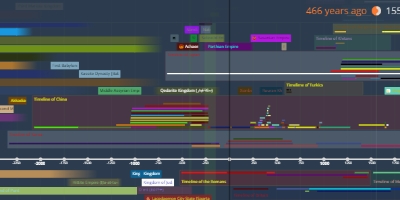Swedish Empire (Stormaktstiden) (oct 30, 1611 – sep 10, 1721)
Description:
The Swedish Empire (Swedish: Stormaktstiden, "the Era of Great Power") was a European great power that exercised territorial control over much of the Baltic region during the 17th and early 18th centuries. The beginning of the empire is usually taken as the reign of Gustavus Adolphus, who ascended the throne in 1611, and its end as the loss of territories in 1721 following the Great Northern War.After the death of Gustavus Adolphus in 1632, the empire was controlled for lengthy periods by part of the high nobility, such as the Oxenstierna family, acting as regents for minor monarchs. The interests of the high nobility contrasted with the uniformity policy (i.e., upholding the traditional equality in status of the Swedish estates favoured by the kings and peasantry). In territories acquired during the periods of de facto noble rule, serfdom was not abolished, and there was also a trend to set up respective estates in Sweden proper. The Great Reduction of 1680 put an end to these efforts of the nobility and required them to return estates once gained from the crown to the king. Serfdom, however, remained in force in the dominions acquired in the Holy Roman Empire and in Swedish Estonia, where a consequent application of the uniformity policy was hindered by the treaties by which they were gained.
After the victories in the Thirty Years' War, Sweden reached the climax of the great-power era during the Second Northern War, when its primary adversary, Denmark–Norway, was neutralized by the Treaty of Roskilde in 1658 (this is when the Swedish empire was at its largest extent). However, in the further course of this war, as well as in the subsequent Scanian War, Sweden was able to maintain its empire only with the support of its closest ally, France. Charles XI of Sweden consolidated the empire. But a decline began with his son, Charles XII. After initial Swedish victories, Charles secured the empire for some time in the Peace of Travendal (1700) and the Treaty of Altranstädt (1706), before the disaster that followed the king's war in Russia. The Russian victory at the Battle of Poltava put an end to Sweden's eastbound expansion, and by the time of Charles XII's death in 1718 only a much-weakened and far smaller territory remained. The last traces of occupied continental territory vanished during the Napoleonic Wars, and Finland went to Russia in 1809, with Sweden's role as a great power vanishing as well.
Sweden is the only Scandinavian country to have ever reached the status of a military great power.
Added to timeline:
Date:
oct 30, 1611
sep 10, 1721
~ 109 years
